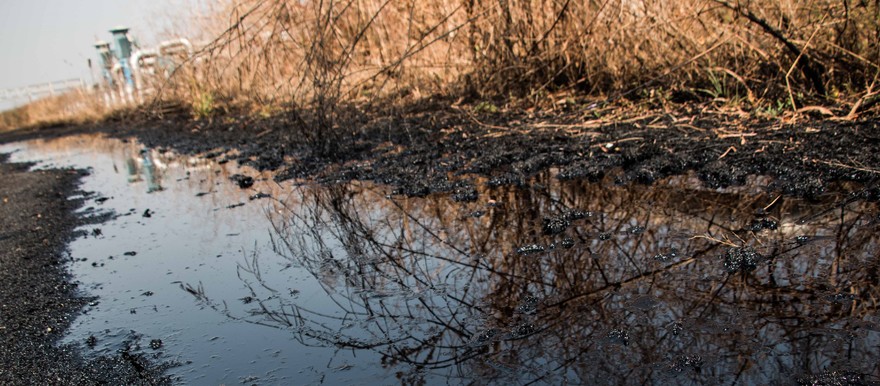An independent South Sudanese research organization has found that none of the environmental transparency provisions of the Petroleum Act 2012 are being enforced, in particular a requirement that oil spills and leaks be disclosed to affected communities.
The Sudd Institute, an independent national research organization, published a policy brief last week saying that there has not been enough transparency in disclosing pollution, leakage and spills by operating companies: “Companies get away with pollution because of lack of transparency in disclosing it to the government and the communities so that necessary actions can be taken.”
Based on a research questionnaire given to key officials at the Ministry of Petroleum, Mining and Industry, Ministry of Environment, and Nile Petroleum Corporation, the research organization concluded, “There is a zero level enforcement for environmental management transparency practices.”
“For example… oil spills, incidents and leakage, have not been disclosed to the public and the communities as required by the Act. No measures have been taken against non-compliance in disclosing the above to the communities and the public.”
The report was authored by Nhial Tiitmamer, Research and Training Officer at the Sudd Institute.
He recommended that the government should open up access to information “by making it easy for civil society, community members and researchers to have access to the oilfields to help the government monitor and document environmental conditions and provide mitigation measures accordingly.”
Photo: An oil spill in South Sudan’s Unity State, 2015 (Radio Tamazuj)
Related:
Irrecoverable losses at S Sudan oil fields (30 March)




